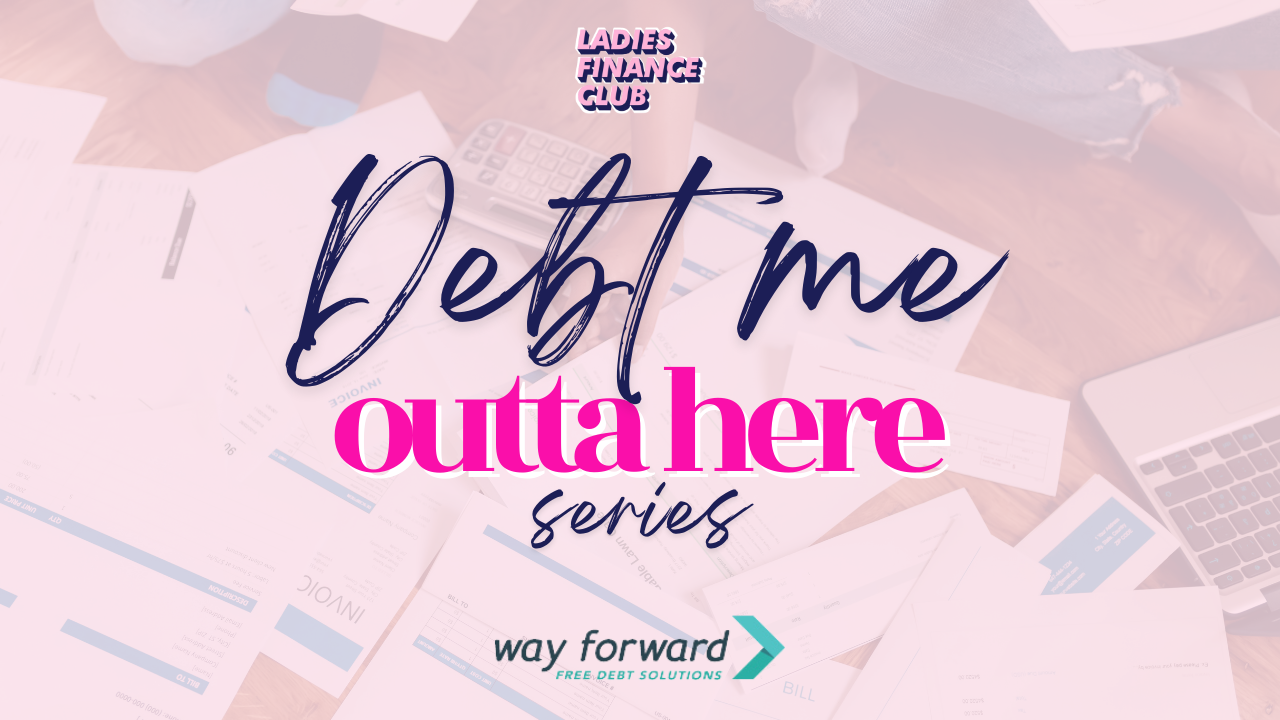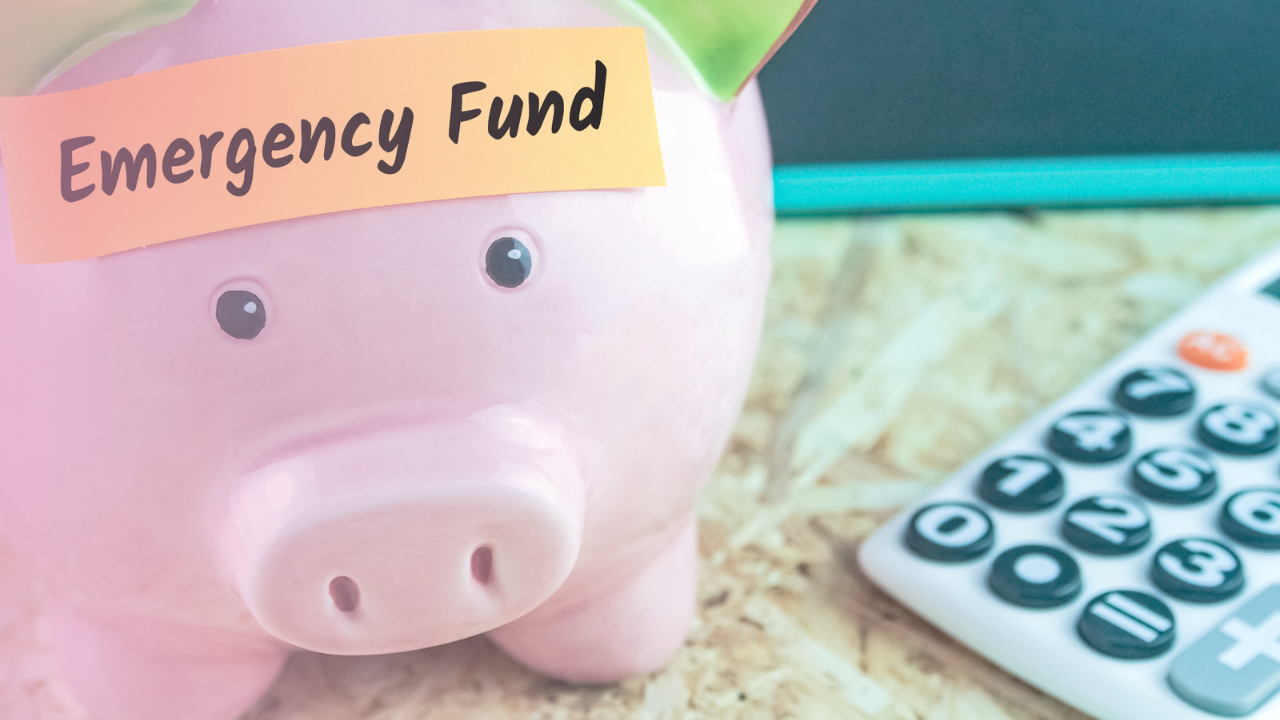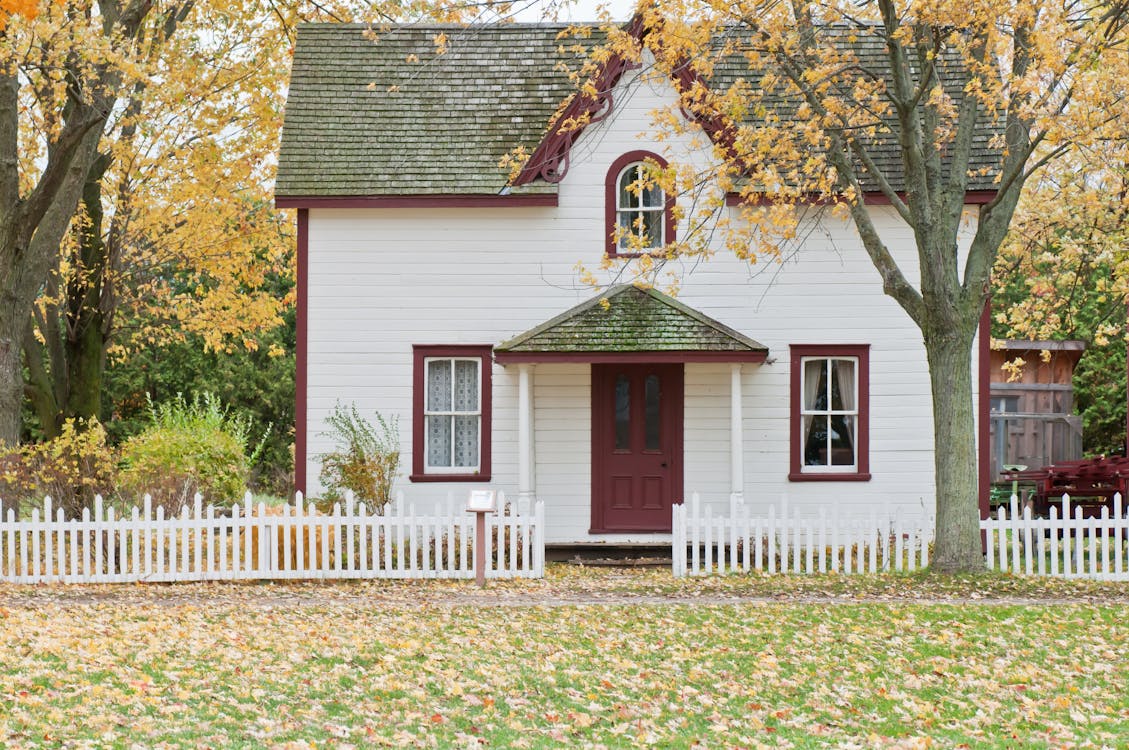Debt Me Outta Here Series
Feb 27, 2023
Debt Me Outta Here Series
Struggling with debt? Get in touch with Way Forward. Way Forward is a free debt charity that advocates with creditors on behalf of people who are experiencing financial hardship. We help those who are in problem debt to get back on their feet.
Should I pay off my credit card or build my emergency money?
Paying off your credit cards and building an emergency fund are both great ways to get on top of your finances.
The question is: which one is the best to do right now? 🤔 Ultimately, finding a way to work on both at the same time is the optimal, so let’s explore how you can do this.

To begin, let’s assume that you have money remaining in your account once all your bills are paid. Then, work out how much credit card do you have and what interest are you paying. Keep in mind that the larger the amount of the debt, the more you will be ultimately paying in interest.
Ultimately, it makes sense to go for the psychological win. What is going to give you the motivation to keep going? If you set yourself a goal to have $2,000 in your emergency fund and you can do it in a couple of months, then aim for that and then start paying off your card debts. 💳
If you need motivation to pay off your credit cards, start with the smallest balance first and clear the account, then move on to the next one but make repayments that are equal or greater than what you’ve been paying to the account you’ve just closed.
On the other side of a psychological win is the logical answer but if you lack the motivation or the end is too far away you need the smaller goals to feel a sense of achievement. I guess the right answer to the question is which one do you think you can stick too for the longest? Only you can answer that.
How much do I need for an emergency fund?

There is no easy answer when deciding how much you need for an emergency fund. The best place to start is calculate how much it costs to cover all your bills for 2 weeks and then add anything else you need on top of that.
Start with a basic budget so you can see where your money is going. Work out the amount that remains after you have covered all your expenses, we’ll call this your discretionary fund (you choose where to direct these funds). The number one rule here is earn more than you spend. When you know how much you have left over after you’ve covered your bills (maybe it’s $50 per week) you then have a choice, do I put it in an emergency fund or onto the credit card?
It might also help to reflect on whether you’re buying things that fit into a ‘discretionary’ category or those items or services you could live without for a short period of time, and whether this money could instead go into your emergency fund? This might turn $50 per week into $70 per week. This doesn’t need to last forever, but even that extra $20 per week over 3 months gives you an extra $240 by merely cutting down on spending.
What happens to debt in divorce and what happens if you took on your partner's debt? 👫

The first place to start is to get specialist legal advice. You may not want to rock the boat in the relationship but if there is debt in your name and you did not benefit from taking out a loan, then you need to clarify whether you should have to pay it back. Speak to a community legal centre or a financial counsellor to understand your rights first and then you can work out what you do from there. Information is key to then finding the best course of action.
If my credit score is low, how can I change this? 🧐

The only way to change your credit score is with time and regular payments. Typically, scores are calculated by looking at your past 2 years of repayment history and last 5 years of inquiry information (i.e., when you have applied for credit). This information is used to predict how risky it is to provide you with credit. Factors that you can influence in your score include:
- If you meet your payments on time and for the correct amount of money
- Avoid ‘shopping around’ too much for credit. Every time you apply for credit, it will generate another entry on your credit file.
You are entitled to a free copy of your credit file every 3 months check it out and you can get a better idea of how you look to a perspective lender.
How do I get a handle on my bills I feel like I've overdone it and am strapped for cash? 💵

Some utility providers (gas, electricity, water) offer an instalment payment plan or ‘bill smoothing’. This is where you can arrange to make payments fortnightly or monthly instead of paying the whole amount in one go. Contact your provider to ask about setting this up.
If you do contact a billing company, sometimes they can provide some options to help you keep using the existing service while you slowly clear any outstanding amounts.
You may also be eligible to access grants from state or federal governments.
What's better credit card interest-free balance or getting a loan to pay off cc debt? 🤔
I'm always wary of borrowing to get out of debt! It just never feels like a great start to a relationship with a lender. That said, it’s worth figuring out how much debt you have and whether you can you pay it off in the interest free period. Obviously interest free sounds pretty good but if you have any amount outstanding at the end of that period, you’re going to start paying high interest rates on that balance. Check the terms and conditions. The other thing to keep in mind is that a credit card has a limit, as much as you might pay it down you can be tempted to spend it again. This solution requires discipline, don’t spend it!
 If it’s going to take longer than the interest free period to repay the debt or you need the structure of a set regular amount, then a debt consolidation loan might be for you. BUT I do want to finish where I started, I'm always wary of borrowing to get out of debt! Are you swapping one problem for another one? 😬
If it’s going to take longer than the interest free period to repay the debt or you need the structure of a set regular amount, then a debt consolidation loan might be for you. BUT I do want to finish where I started, I'm always wary of borrowing to get out of debt! Are you swapping one problem for another one? 😬
Does having high HECS affect my ability to borrow for a property?

Not our space but the short answer is yes, it’s a debt that needs to be paid back and needs to be considered in your budget when working out if you can afford to pay back a loan.



